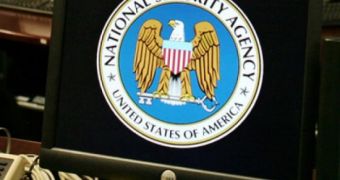James Clapper, the Director of National Intelligence, released a statement along with the declassified documents indicating the NSA had been “misunderstanding” a FISA court ruling for three years, collecting thousands of domestic communications in the process.
In the statement, Clapper leads everyone to believe that the decision to release all these papers was made independently and not the exact facts – namely that the Electronic Frontier Foundation won the right to have these files declassified in a lawsuit.
“In June of this year, President Obama directed me to declassify and make public as much information as possible about certain sensitive intelligence collection programs undertaken under the authority of the Foreign Intelligence Surveillance Act (FISA) while being mindful of the need to protect national security,” Clapper starts his statement.
“Consistent with this directive, today I authorized the declassification and public release of a number of documents pertaining to the Government’s collection of bulk telephony metadata under Section 501 of the FISA, as amended by Section 215 of the USA PATRIOT Act,” he writes.
Of course, he then makes a reference as to how he determined the harm to national security is outweighed by the public interest.
Throughout the note there’s no indication that the papers were released for any other reason than his own decision. There’s no mention that the court ordered the declassification of these files during the EFF trial.
There’s not even any mention to how the intelligence community in the United States has fought tooth and nail to keep this kind of information under wraps for years.
“They demonstrate that the Government has undertaken extraordinary measures to identify and correct mistakes that have occurred in implementing the bulk telephony metadata collection program – and to put systems and processes in place that seek to prevent such mistakes from occurring in the first place,” the statement reads.
The files in question indicate the NSA had collected domestic data for three years before someone even realized the FISA court meant they could only spy on about 2,000 individuals placed on an “Alert list.”

 14 DAY TRIAL //
14 DAY TRIAL //